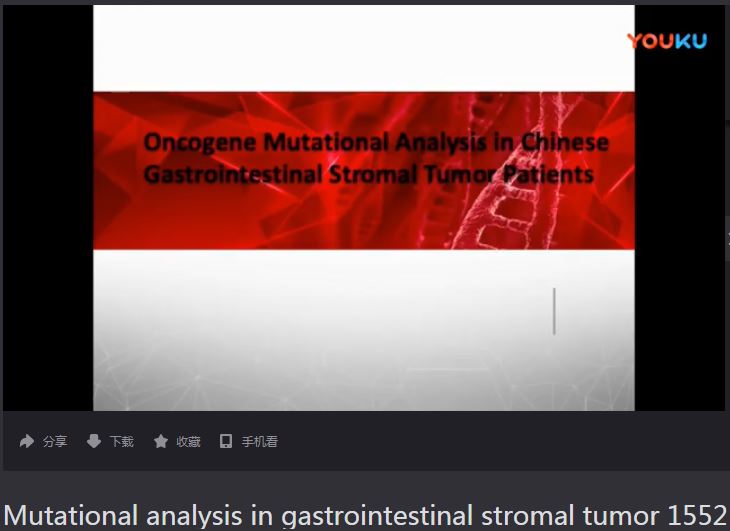100763
论文已发表
提 交 论 文
注册即可获取Ebpay生命的最新动态
注 册
IF 收录期刊
- 3.3 Breast Cancer (Dove Med Press)
- 3.4 Clin Epidemiol
- 2.5 Cancer Manag Res
- 2.9 Infect Drug Resist
- 3.5 Clin Interv Aging
- 4.7 Drug Des Dev Ther
- 2.7 Int J Chronic Obstr
- 6.6 Int J Nanomed
- 2.5 Int J Women's Health
- 2.5 Neuropsych Dis Treat
- 2.7 OncoTargets Ther
- 2.0 Patient Prefer Adher
- 2.3 Ther Clin Risk Manag
- 2.5 J Pain Res
- 2.8 Diabet Metab Synd Ob
- 2.8 Psychol Res Behav Ma
- 3.0 Nat Sci Sleep
- 1.8 Pharmgenomics Pers Med
- 2.7 Risk Manag Healthc Policy
- 4.2 J Inflamm Res
- 2.1 Int J Gen Med
- 4.2 J Hepatocell Carcinoma
- 3.7 J Asthma Allergy
- 1.9 Clin Cosmet Investig Dermatol
- 2.7 J Multidiscip Healthc

Oncogene mutational analysis in Chinese gastrointestinal stromal tumor patients
Authors Chen Q, Li R, Zhang Z, Deng Q, Li K, Wang H, Yang X, Wu Y
Received 26 October 2017
Accepted for publication 4 January 2018
Published 20 April 2018 Volume 2018:11 Pages 2279—2286
DOI http://doi.org/10.2147/OTT.S155214
Checked for plagiarism Yes
Review by Single-blind
Peer reviewers approved by Dr Amy Norman
Peer reviewer comments 2
Editor who approved publication: Dr Ingrid Espinoza
Background: Gastrointestinal stromal tumors (GISTs) are the most common mesenchymal
tumors and exhibit a high frequency of oncogenic KIT or PDGFRA mutations. Tyrosine
kinase inhibitors (TKIs) have been mainly used in the treatment of GISTs
bearing KIT/PDGFRA mutations.
However, other mutation profiles have been found to affect the sensitivity to
and effectiveness of TKIs in the treatment of GISTs.
Purpose: The aim of the present study was to describe the
mutational status of multiple genes in GIST samples and to provide information
for finding potential predictive markers of therapeutic targets in Chinese GIST
patients.
Patients and methods: MassARRAY spectrometry was used to test 40
Chinese GIST patients for 238 mutations affecting 19 oncogenes.
Results: A total of 14 oncogenes with 43 mutations were
detected in 38 samples, with a mutation frequency of 95%. Among these mutation
samples, 26 GISTs were found for KIT or PDGFRA mutations, while 12
were KIT/PDGFRA wild-type.
Approximately half of the GIST samples harbored multiple mutations. The most
frequent mutations were found in KIT (62.5%), CDK4 (17.5%), NRAS (15%) and EGFR (12.5%). Other mutations
included PIK3CA and AKT1 (10%), BRAF and ABL1 (7.5%), PDGFRA , ERBB2 and HRAS (5%), and AKT2 , FLT3 and KRAS (2.5%). New mutated
genes (CDK4 , AKT2 , FLT3 , ERBB2 , ABL1 and AKT1 ), a higher BRAF mutation frequency
(7.5%) and new BRAF mutation sites (G464E) were found in Chinese GIST patients.
Conclusion: This study demonstrated useful mutations in a small
fraction of Chinese GIST, but targeted therapeutics on these potential
predictive markers need to be investigated in depth especially in Oriental
populations.
Keywords: gastrointestinal
stromal tumor (GIST), mutation, tyrosine kinase receptor, oncogene
